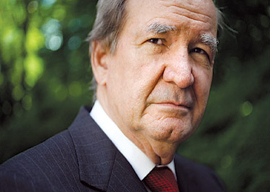Although the Republican party is the “party of white people” and Democrats the “non-white party” a lot higher proportion of the latter vote Democrat than the former Republican. Whites may go majority Republican, but still less than 60% voted Republican. In contrast blacks went 95%+, hispanics 75%+, South Asians 80%+, East Asians 70%+, etc.

Following last November’s election I passed the following remark on Radio Derb: “We are still fighting the Civil War. That is to say, the contest was mainly between two huge groups of white people who don’t much like each other, with the colored folk playing a marginal role. That’s how it was in the War Between the States, and that’s how it still is today.”
It is by no means an original observation. In a piece on Taki’s Magazine last month (“Sectionalism, Then And Now”), I retailed Shelby Foote’s quoting of the definition of the Civil War offered by Senator James M. Mason of Virginia (1798-1871): “I look upon it then, Sir, as a war of sentiment and opinion by one form of society against another form of society.”
Here is a lengthier exposition of the same notion, which I think is a key to understanding American politics and social history, past and present. It’s from the pen (keyboard, whatever) of “Doug,” a commenter at EconLog. I was browsing these comments — they relate to a column by Bryan Caplan — after being directed there by Steve Sailer, who also has things to say in the comment thread.
Here is Doug’s first, slightly edited for clarity:
Let’s say you were to immigrate to a new country which is essentially divided between two hostile tribes engaged in perpetual low-intensity warfare. We’ll call them Hutus and Tutsis. You have no previous allegiance or affiliation with either tribe.
[…]




















